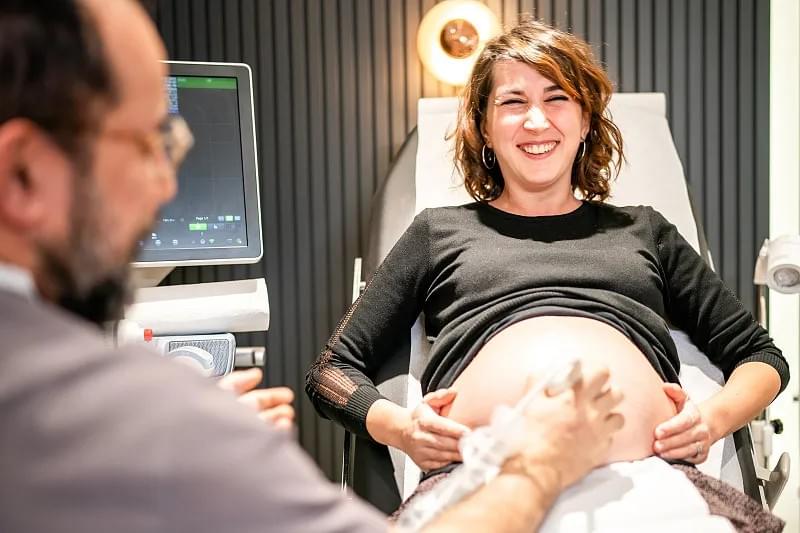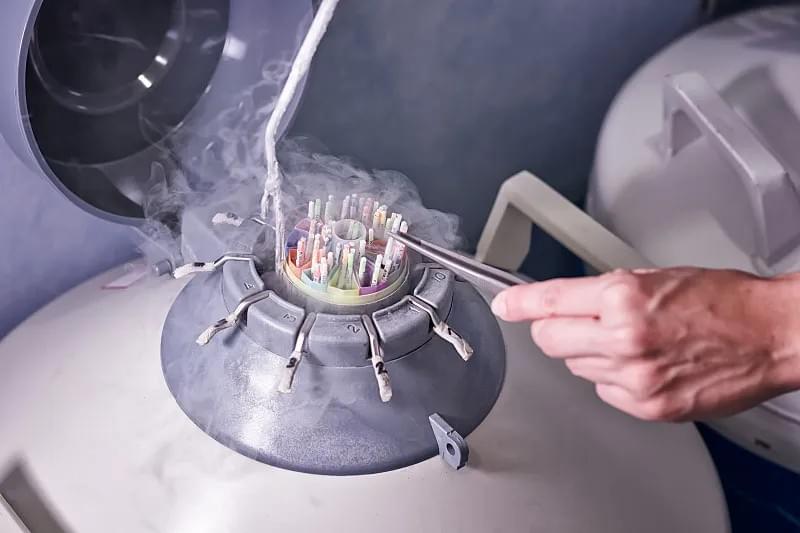For many women, the dream of motherhood doesn't fade with age—it often deepens. In recent decades, advances in reproductive medicine and shifting societal norms have opened new pathways to parenthood, particularly for older women who may face challenges conceiving naturally. One of the most transformative options available today is surrogacy. Once considered a last resort, surrogacy has evolved into a viable and increasingly popular route for women over 40, 45, and even 50, to build their families. This article explores the growing trend of surrogacy for older women, the medical, emotional, and legal considerations involved, and how modern fertility solutions are reshaping the landscape of later-life parenthood.
Why Are More Older Women Choosing Surrogacy?
The average age of first-time mothers in many developed countries has been steadily rising. According to data from the CDC and Eurostat, women are delaying childbirth due to career advancement, financial stability, and personal choice. However, fertility declines significantly after the age of 35, and by 40, natural conception becomes increasingly difficult. For women over 45, the chances of successful pregnancy using their own eggs drop below 5% in many fertility clinics.
This biological reality has led many older women to explore assisted reproductive technologies (ART), with surrogacy emerging as a preferred solution—especially when combined with in vitro fertilization (IVF) and egg donation. Whether due to medical conditions like premature ovarian failure, uterine abnormalities, or repeated IVF failures, surrogacy offers a way for older women to experience genetic parenthood (when using their own or donor eggs) and the profound joy of raising a child.
Moreover, social acceptance of non-traditional family-building methods has grown. Celebrities and public figures openly discussing their surrogacy journeys have helped destigmatize the process, making it a more visible and respected option for women of all ages.

How Does Surrogacy Work for Older Women?
There are two primary types of surrogacy: gestational and traditional. For older women, gestational surrogacy is almost always the recommended route. In this process, the surrogate (also known as a gestational carrier) has no genetic link to the baby. Instead, an embryo is created using:
- The intended mother’s egg (if viable) or a donor egg
- The intended father’s sperm or donor sperm
- Fertilization via IVF in a laboratory
The resulting embryo is then transferred to the surrogate’s uterus, where she carries the pregnancy to term.
For women over 40, the use of donor eggs is common. Young, healthy donor eggs significantly increase the chances of a successful pregnancy and reduce the risk of chromosomal abnormalities. Many fertility clinics report success rates of over 50% per embryo transfer when using donor eggs with gestational surrogacy—far higher than what older women might achieve using their own eggs.
The process typically involves several stages:
- Medical and psychological screening of both the intended parents and the surrogate.
- IVF cycle coordination, including egg retrieval, fertilization, and embryo development.
- Embryo transfer to the surrogate.
- Pregnancy monitoring and ongoing support.
- Legal parentage establishment before and after birth.
Many older women find that working with a reputable surrogacy agency simplifies the logistics, provides emotional support, and ensures compliance with international or state-specific laws.

Medical Considerations and Risks
While surrogacy removes the physical burden of pregnancy from the intended mother, it’s important for older women to undergo thorough medical evaluations. Even if they are not carrying the child, their overall health impacts the success of the IVF process and their ability to parent.
Key considerations include:
- Cardiovascular health: As women age, the risk of hypertension and heart conditions increases, which can affect hormone treatments and long-term parenting stamina.
- Genetic screening: Preimplantation genetic testing (PGT) is often recommended to screen embryos for chromosomal disorders like Down syndrome, especially when using older eggs or donor eggs from unknown lineages.
- Hormonal support: Intended mothers may need hormone therapy to prepare for embryo creation or to support lactation post-birth (in cases of induced lactation).
Additionally, while the surrogate undergoes rigorous health screenings, intended parents should be prepared for potential complications such as gestational diabetes, preeclampsia, or preterm birth—conditions that can affect any pregnancy, regardless of the surrogate’s age.
Despite these risks, studies published in journals like Fertility and Sterility show that children born via surrogacy to older intended parents fare just as well emotionally and physically as those born through natural conception. The key is comprehensive planning and access to quality medical care.
Emotional and Psychological Dimensions
The journey to parenthood through surrogacy can be emotionally complex, especially for older women who may have endured years of infertility or loss. Feelings of grief, anxiety, and even guilt are not uncommon. It’s crucial to have access to counseling and support groups throughout the process.
Many women report a sense of empowerment upon completing their surrogacy journey. They appreciate the opportunity to become mothers later in life, often bringing greater emotional maturity, financial stability, and life experience to parenting. The bond with the child is not diminished by the method of conception—rather, it is often strengthened by the intentionality and effort behind it.
Surrogates themselves often describe the experience as deeply meaningful. Ethical surrogacy programs emphasize informed consent, fair compensation, and mutual respect between all parties, fostering a positive and collaborative environment.

Legal and Ethical Frameworks
One of the most critical aspects of surrogacy for older women is navigating the legal landscape. Laws vary dramatically by country and even by state. For example:
- Canada and Ukraine allow altruistic surrogacy but ban commercial arrangements.
- The United States permits compensated surrogacy in many states, with clear legal processes for establishing parentage before birth.
- Germany and France prohibit surrogacy entirely.
Older intended parents must work with experienced reproductive lawyers to ensure that parental rights are secured, contracts are enforceable, and international travel (if applicable) complies with immigration and citizenship laws. For instance, a U.S.-born child may automatically gain citizenship, even if the parents are foreign nationals using an American surrogate.
Ethically, transparency, informed consent, and fair treatment of surrogates are paramount. Reputable agencies prioritize the well-being of the surrogate, ensuring she has independent legal counsel and access to medical care throughout the process.
The Future of Surrogacy for Older Women
As reproductive technology continues to advance, the possibilities for older women will expand further. Innovations such as mitochondrial replacement therapy, artificial wombs (still in experimental stages), and improved embryo selection techniques may one day make surrogacy safer, more accessible, and even more personalized.
Moreover, societal attitudes are shifting. Parenthood is no longer defined solely by biology or age, but by love, commitment, and capability. Older women who choose surrogacy are not defying nature—they are using science and compassion to fulfill a deeply human desire.

Conclusion
Surrogacy for older women is more than a medical procedure—it’s a profound journey toward parenthood that combines science, empathy, and resilience. As fertility clinics improve success rates, legal systems adapt, and social acceptance grows, more women in their 40s, 50s, and beyond are embracing surrogacy as a realistic and rewarding path to building a family.
For those considering this option, the most important steps are education, consultation with medical and legal professionals, and connecting with others who have walked this path. With the right support, the dream of motherhood later in life is not only possible—it’s becoming a celebrated reality.
Whether you’re exploring surrogacy for the first time or supporting someone who is, understanding the process, the possibilities, and the emotional depth involved can make all the difference. The future of family is diverse, inclusive, and full of hope—and for many older women, surrogacy is the bridge to that future.
